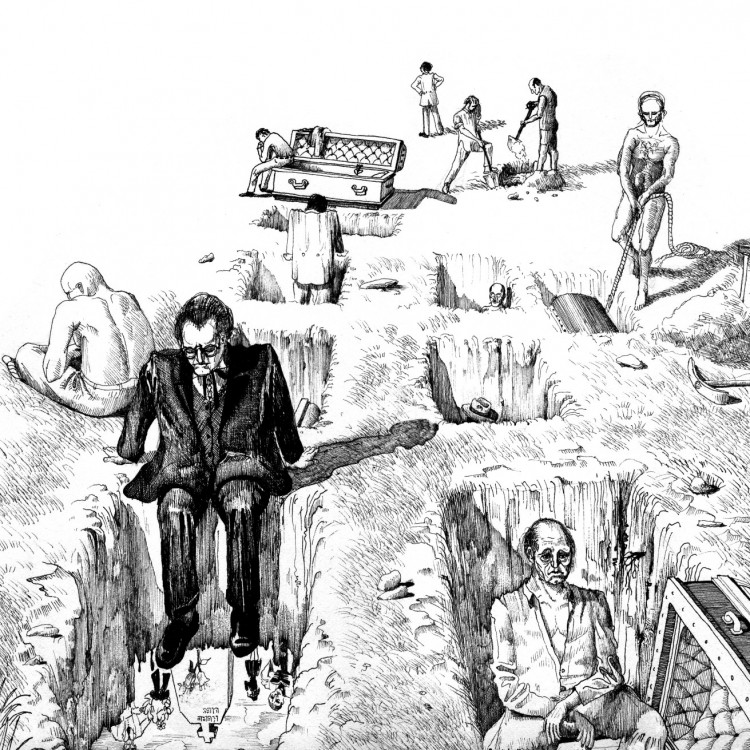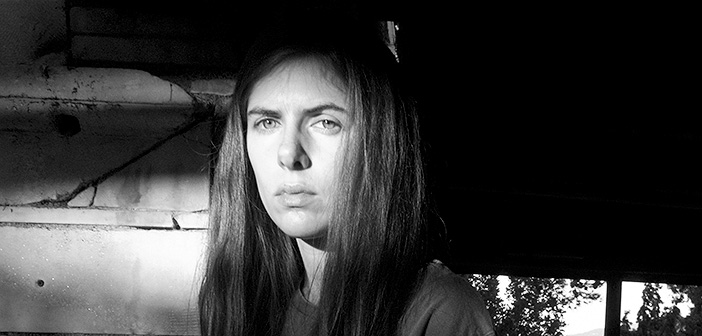From Detroit with love - the exclusive interview with Laurel Halo
Laurel Halo musical path is steeped in diversities of modern electronic music, yet at the same time is conceptually consistent. Having grown up in Ann Arbor, the American town close to Detroit, she managed to embrace all the musical climate of the latter and channel it in new own peculiar, emotive and innovative ways. Her early more intense rhythmic experiments led to the celebrated "Quarantine", an abstract, cold, beautiful and emotional masterpiece dealing with brutal human experiments of the modern world. The record successfully merged the feeling of modern isolation and alienation with the very accurate landscape of contemporary urban psychogeography. However, "Quarantine" was also filled with its own glassy aesthetics, charming ambient soundscapes, emotive and heartfelt vocals, an actual songs, that sound like written in (not so) distant future. A beautiful and emotional record indeed.
No wonder that Laurel's second LP was one of the most anticipated releases this year. However, "Chance of Rain" is going to be a different kind of affair. The record is based on more rhythmic live improvisations rather than being recorded from scratch in the studio and has much more expressed presence of Detroit sonic heritage. The emotional side of the artist is also present here with the melancholic swashes of atmospheric layers shining like the sun through clouds after the rainy day in town, thus resonating with the album's title and cover art drawn by her dad.
While impatiently waiting for her exclusive performance in Unsound Festival in Krakow, Secret Thirteen gave Laurel some questions about her forthcoming album, modernities, technology and sound perception.
Interview:
In "Chance of Rain" we hear a slight shift to heavier rhythm based, sometimes almost techno sound in comparison to your previous album "Quarantine". Also there are almost no vocals and darker undertones. Why such shifts? What was the difference between making and recording those two albums?
The short answer is that I wanted to make a record that is coherent with what I perform live. "Quarantine" was written from scratch in the studio, and then reconfigured to be played live, and "Chance of Rain" is the exact opposite, sequences made from scratch for live performance, and then reconfigured to be synthesized as individual tracks, and then an album. I wanted to take on new approaches in the writing stage - such as using fewer channels per track, how to incorporate a sense of melody without overt melodic lines - while still incorporating elements I’ve always used in terms of the flow of the tracks and the mood. My music has always been on the dark side, if anything I think "Quarantine" wears its darkness more on the sleeve than with this record. Also when you consider that I’ve released beat oriented music prior to "Quarantine", it’s not such a shift, just more an evolution of the sound.
We find both your LPs sounding somehow futuristically romantic. Does this reflect your own personal moods/attitudes/relation with the world? Are you a romantic person and where do you find more inspiration/beauty - in past or in futurism?
It’s difficult because I don’t know exactly what you mean by "futurism" and "romantic". Because I don’t think my music is "romantic" in the traditional sense of the word, and while I’m interested in making progressive music I’m not sure if it’s exactly "futuristic". When I think "futuristically romantic" it makes me think of an overly simplistic preference for the future based on misinformation, and in that sense, I’d never consider my music to be that way. How can you possibly have a vision of the future when it’s shaped by your past? The graveyards of science fiction are full of these flying cars and I’m not about making eyes at the techno utopia. Basically I’m fascinated by "the future" but I’m also dejected by the futility of it, of the idea of "the future", and I’m more interested in what can be done to pervert the blank canvassing of control that the idea inspires, and how to engage with progressivity without the burden of continuity. The romantic edge on the record perhaps comes from the keyboard tracks or moody chords, but I wouldn’t go so far as to call it a romantic record.
You entered the scene in a very interesting time, when modern technologies and internet seem to make a big impact to culture. How are you influenced by modern technologies and their relation to arts? Do you treat them in a more positive or negative way?
In terms of what I use to make music I don’t necessarily have a preference for modern technologies, I use both vintage and contemporary sounds. I don’t think it’s wrong if someone wants to use their iPad to make music provided that the music is good. And while there’s nothing negative about modern technology by itself, I think there’s a risk of stagnation with these new channels, just cause of the ouroboros potential and the hive mind’s inability to put forth individual opinion. A lot of music coming out today sounds the same, so artists have to dig deeper in a way.
What's the meaning behind "Chance of Rain" album cover? How it correlates with the album's mood? What's the importance of cover art?
The cover is a drawing by my father that has been on the wall behind my studio monitors - basically I have looked at the image everyday for years now. It’s meant to be disorienting but there’s some black humor and hope in there as well. It serves both as a parallel and contrast to the album’s sound. Parallel in that the cover and the music both have an intricate representation of moodiness, contrast in that the album’s sound is considerably more colorful than the bleakness of the subject of the drawing. Cover art is very important to me, it says a lot about the music, it’s what ties together an album.

Laurel Halo - Chance Of Rain
You are classically trained musician. What are the benefits of that? Do you find those skills more liberating or limiting in terms of creating? Do you think it is important for electronic musician have at least some grasp of classical music knowledge and know how to play an instrument?
The tangible benefits of classical training are the same as the drawbacks - namely with something like ear training, it’s helped in that I get bored by basic harmonies and seek to make more bizarre chords, but what does pitch information really have to do with narrative or feel? Does it matter how clever your harmonic voicings are when the overall vibe is the most important? Does harmony even matter for the kind of music I want to make? Theo Parrish once said “You can teach a monkey to mix, but can he tell a story?” , and I thought that this comment about DJing actually fits this context too - you can learn your way backwards and forwards around notation and theory and you can sing any note out of thin air, but what does that have anything to do with making music from the heart that is also unique and compelling?
You moved from Ann Arbor to New York. Ann Arbor is close to Detroit. How those geographical locations influence you as a musician and as a personality? How New York changed your life as an artist and did this move influence your music?
The scene in Ann Arbor was very welcoming when I first started making music, and it was cool cause the town was small enough that one show would have a noise artist, a folk artist and a house DJ. I suppose growing up in Michigan you can’t help but be inspired by the history of music there, in Detroit, in Ypsilanti, in Ann Arbor, it’s bizarrely a cool place for music, and I’m always learning more about music from my home estate. New York changed my life as an artist in the sense that I could observe a lot more artists making music, both on an underground scale and world-class artists of all types, so there was a lot of culture absorption, and I was able to play more shows, and after a few years save up some money and buy real instruments and equipment. I also learned a bit more about how trends operate and how people operate within trends, and avoided getting sucked into that at all costs. After a time I ended up just hiding out in NYC, barely going out and focusing on my music.
What was the best sonic experience you have ever encountered? How did it influence you?
It’s hard to pin down - there’s so many - I saw Model 500 play at DEMF to a crowd of thousands in the rain screaming for Juan Atkins to herald the arrival of the Mothership, I heard a Ryoji Ikeda piece in a theatre with huge subs and crystalline brain piercing highs that sounded like pure information, I’ve heard pure silence while Northern Lights erupted vertically into the cosmos over a frozen Lake Michigan beach at night... I suppose it’s the goosebumps factor, how can sound or music make your hair stand on end, how can you make compelling, unforgettable music that completely dissolves time.
What would be an ideal setting for you live performance and what was the best place you performed?
An ideal setting for live performance entails a venue with impeccable sound, good bass pressure and chilled out highs, a crowd that’s up for it, maybe some outdoor space with fresh air would be great too. The best place I’ve performed in recent memory was a Chinese all-you-can-eat buffet in Ridgewood, Queens, decked out with The Bunker NY’s soundsystem. It was a bizarre but unforgettable night.
More about Laurel Halo: website - facebook - twitter - soundcloud

